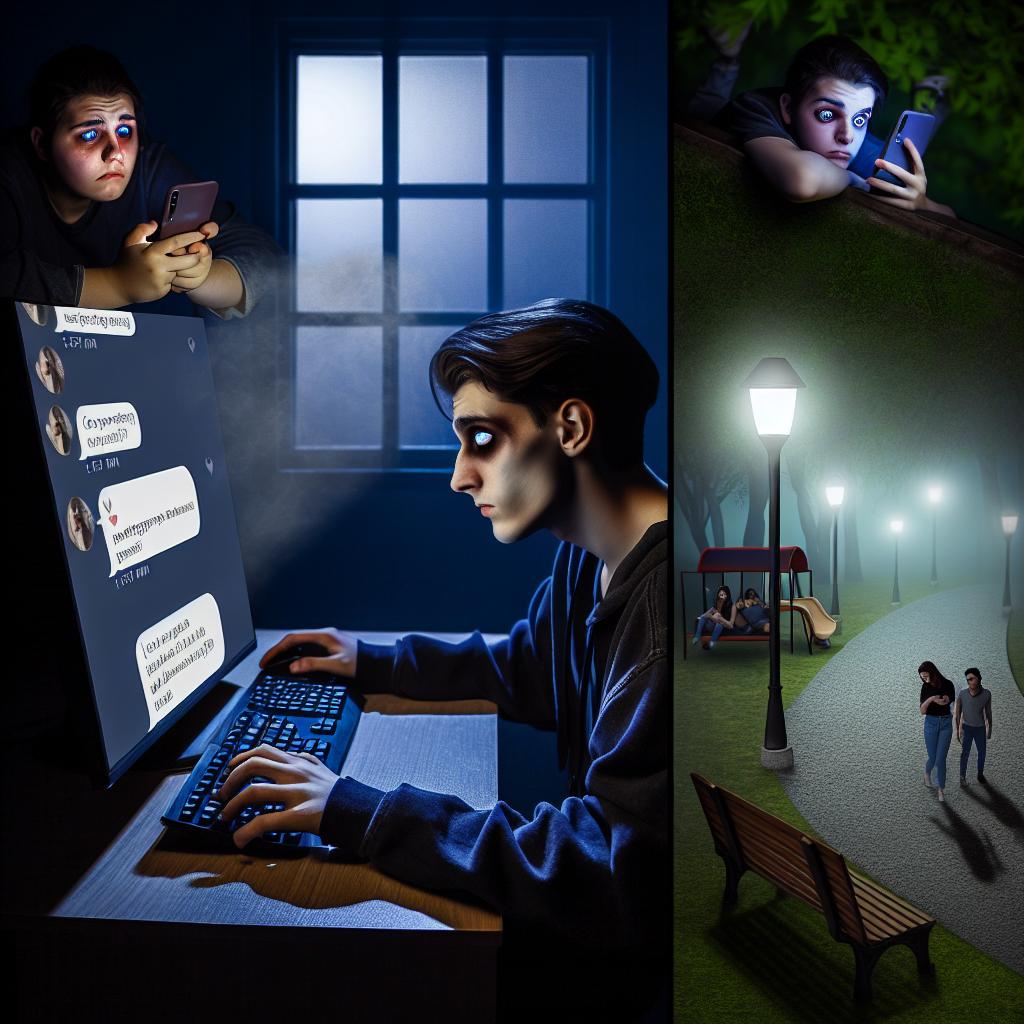Introduction to Gaming and Friendship Neglect
The digital landscape has significantly evolved over the past few decades, with video gaming becoming an integral part of modern entertainment. The appeal of video games lies in their ability to provide engaging and interactive experiences that can captivate millions across the globe. Yet, amidst the growing popularity of gaming, there emerges a concern: the apparent neglect of personal relationships, particularly friendships. As gaming consumes more of our time, questions arise about its influence on social dynamics and personal well-being.
The Allure of Gaming
Video games have been carefully crafted to be both engaging and immersive. They stimulate reward centers in the brain and frequently offer players a palpable sense of achievement. This is accomplished through the use of compelling storylines, realistic graphics, and a variety of multiplayer options that facilitate virtual social interactions. As technological advances continue to enhance the gaming experience, these virtual environments become more enticing, often leading players to choose them over real-world interactions.
Players may find themselves investing countless hours in their digital adventures, which can eventually lead to a preference for virtual contacts over tangible relationships. Immersion in these games can provide an escape from daily life, offering a world where one’s character progresses, achieves, and interacts with others, albeit through a screen. With sophisticated elements integrated into these games, the line between entertainment and reality becomes blurred, encouraging prolonged engagement.
Impact on Friendships
A pressing concern that accompanies the rise of gaming is its impact on friendships. Time is a limited resource, and when significant portions are dedicated to gaming, there is inherently less time to foster and maintain real-world friendships. The reduction in face-to-face interactions can substantially affect the quality of relational dynamics. As communication wanes and shared real-world experiences diminish, friends might perceive this shift as a decline in effort or interest, potentially straining or severing friendships.
The challenges include limited opportunities to create shared memories, diminished discussions about non-gaming topics, and a potential withdrawal from social circles. As someone absorbs themselves in a digital universe, their real-world relationships might weaken, leading to a sense of disconnect with those who matter most.
Research Findings
Numerous studies have explored the ramifications of excessive gaming on social relationships. The consensus among researchers is that moderate gaming typically does not yield negative effects. Conversely, excessive gaming tends to correlate with reduced social interactions in real life. Some findings indicate that avid gamers may experience heightened social isolation, as more time spent in gaming activities inevitably means less time available for face-to-face engagement.
The data suggests that while gaming can serve as a method of social interaction, especially in multiplayer settings, it may not entirely substitute the nuanced benefits derived from in-person interactions. The bonds developed in virtual environments may not carry the same depth or reliability as those nurtured through shared physical experiences and genuine, heartfelt communication.
Possible Consequences
The potential consequences of neglecting friendships due to gaming absorption are varied and noteworthy. Here are a few important areas affected by this phenomenon:
Decreased Social Skills: Engaging primarily in virtual interactions limits opportunities to practice and develop essential communication and interpersonal skills. Elemental social cues, often nuanced, might be lost in digital translations.
Loneliness and Isolation: As social bonds weaken due to neglect, individuals may begin to feel a sense of loneliness and isolation, which can negatively impact mental health. Gaming, while engaging, may not fulfill deeper emotional needs.
Deteriorated Relationships: Over time, significant relationships might deteriorate or dissolve entirely, reducing the individual’s support network, which is critical for emotional and psychological well-being.
It is crucial to note that while gaming provides entertainment, it should not replace the satisfaction and growth derived from real-world relationships.
Balancing Gaming and Friendships
Achieving a harmonious balance between gaming and maintaining healthy friendships is essential. Moderation is key in enabling individuals to enjoy gaming without compromising their social ties. Implementing boundaries, such as time limits on gaming each day, can ensure that friendships and other responsibilities are not neglected.
Moreover, integrating friends into gaming activities, such as forming multiplayer teams or organizing gaming nights, can help bridge interests and strengthen relationships. This approach allows for shared experiences within gaming while promoting interpersonal connections.
Encouraging Responsible Gaming
Responsible gaming can be encouraged through awareness and self-regulation. To ensure gaming does not negatively impact friendships, consider the following strategies:
Time Management: Allocate specific time slots for gaming, ensuring that other social activities receive dedicated attention. Balancing time is crucial in fostering and maintaining relationships.
Open Communication: Be transparent about gaming habits with friends and discuss its impact. Clear communication reassures friends of their importance and helps sustain healthy relationships.
Monitoring Impacts: Regularly reflect on how gaming affects personal relationships. Be willing to make necessary adjustments to balance gaming with friendship needs.
For those interested in understanding the influence gaming has on relationships, and for tips on finding balance, consider exploring various additional resources online that delve deeper into effective time management and social interaction strategies.
Conclusion
While gaming stands as a favored pastime for many, it is imperative to ensure it does not overshadow real-world friendships. Achieving and maintaining a balance between leisure activities and social responsibilities is essential for sustaining healthy relationships. By fostering this balance, individuals can enhance their overall well-being, ensuring that both gaming and personal relationships flourish. For those keen on exploring time management techniques and enhancing social interactions, exploring a variety of online resources may provide valuable insights.

